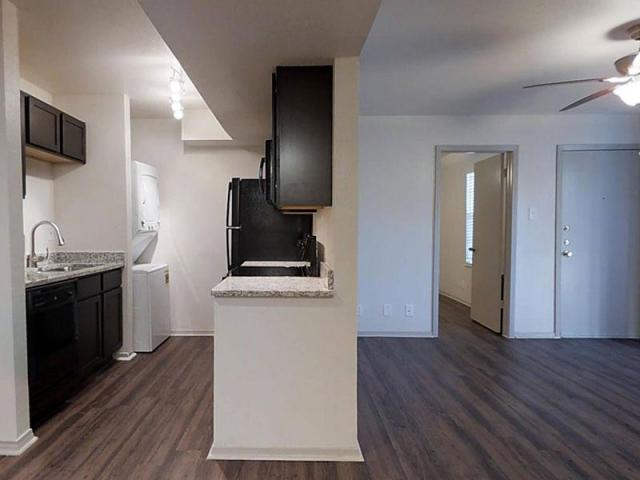Technology on Property Management
In recent years, technology has revolutionized nearly every aspect of our lives, and property management is no exception. From simplifying day-to-day operations to enhancing tenant experiences, technological advancements are reshaping the property management landscape. This blog post delves into how technology is transforming property management, exploring both the benefits and challenges of this digital evolution.
1. Streamlined Operations
One of the most significant impacts of technology on property management is the streamlining of operations. Traditionally, property management involved extensive paperwork, manual data entry, and a reliance on physical documentation. Today, property management software solutions have automated many of these tasks, drastically reducing administrative burdens.
Property management platforms such as AppFolio, Buildium, and Yardi offer comprehensive solutions for handling everything from rent collection and lease agreements to maintenance requests and tenant communications. These platforms integrate various functions into a single interface, allowing property managers to track and manage multiple properties efficiently.
Moreover, cloud-based solutions enable real-time access to property data from anywhere, facilitating better decision-making and more responsive management. For instance, property managers can now access financial reports, lease details, and maintenance histories with just a few clicks, streamlining their workflow and enhancing overall productivity.
2. Enhanced Tenant Experience
Technology has also transformed the tenant experience, making it more convenient and engaging. Online portals and mobile apps have become standard, allowing tenants to pay rent, submit maintenance requests, and communicate with property managers from their smartphones or computers.
These digital platforms often include features such as automated reminders for rent payments and maintenance updates, reducing the likelihood of late payments and missed service requests. Additionally, online applications and digital lease signing streamline the leasing process, making it faster and more efficient for prospective tenants.
Virtual tours and 3D imaging technologies have further improved the rental process. Prospective tenants can now explore properties remotely, saving time and providing a more immersive view of potential homes. This technology not only attracts a broader audience but also enhances the overall leasing experience.
3. Data-Driven Decision Making
Data analytics is another area where technology has made a significant impact on property management. Modern property management software collects and analyzes vast amounts of data, providing valuable insights into property performance and tenant behavior.
By leveraging data analytics, property managers can make more informed decisions regarding rent pricing, property maintenance, and investment strategies. For example, data on rent trends and vacancy rates can help property managers adjust rental prices to maximize profitability while minimizing vacancies. Predictive maintenance tools use data to anticipate potential issues before they arise, reducing repair costs and improving tenant satisfaction.
Additionally, data-driven insights enable property managers to identify patterns and trends, helping them tailor their services to better meet tenant needs and preferences. This level of personalization can lead to higher tenant retention rates and a more competitive edge in the rental market.
4. Smart Home Integration
The rise of smart home technology has introduced a new dimension to property management. Smart devices, such as thermostats, locks, and security cameras, are becoming increasingly popular in rental properties. These devices offer enhanced convenience, energy efficiency, and security, benefiting both property managers and tenants.
For property managers, smart home technology provides valuable tools for monitoring and controlling property systems remotely. For example, smart thermostats can be programmed to adjust temperatures based on occupancy patterns, leading to cost savings on energy bills. Smart locks allow property managers to grant or revoke access without needing physical keys, simplifying the process of managing multiple properties.
Tenants also benefit from the convenience of smart home features. They can control lighting, climate, and security systems from their smartphones, creating a more comfortable and secure living environment. The integration of smart home technology can also make properties more attractive to potential renters, providing a competitive advantage in the market. Come and check the Emerald Of Katong Project Details for additional tips and information about the property market.

5. Challenges and Considerations
While technology offers numerous benefits, it also presents certain challenges and considerations for property managers. One major concern is data security. With the increasing reliance on digital platforms and cloud-based solutions, protecting sensitive information from cyber threats has become a critical priority. Property managers must ensure that their technology providers implement robust security measures to safeguard tenant and financial data.
Another challenge is the potential for technology to create a digital divide. Not all tenants may have access to or be comfortable using digital platforms, which could lead to issues with communication and engagement. Property managers must be mindful of these differences and offer alternative methods for tenants who prefer traditional communication channels.
Finally, the rapid pace of technological advancements means that property managers must continuously adapt to new tools and platforms. This requires ongoing training and investment in technology, which can be a barrier for smaller property management companies. Staying current with technological trends and ensuring that staff are well-trained can help mitigate these challenges.
Conclusion
The impact of technology on property management is profound and multifaceted. From streamlining operations and enhancing tenant experiences to enabling data-driven decision-making and integrating smart home features, technology is reshaping the way property managers operate and interact with tenants.
As technology continues to evolve, property managers must navigate both the opportunities and challenges it presents. By leveraging technological advancements effectively and addressing potential concerns, property managers can enhance their operations, improve tenant satisfaction, and stay competitive in a rapidly changing market. The future of property management is undoubtedly digital, and embracing this transformation will be key to achieving success in the industry.








